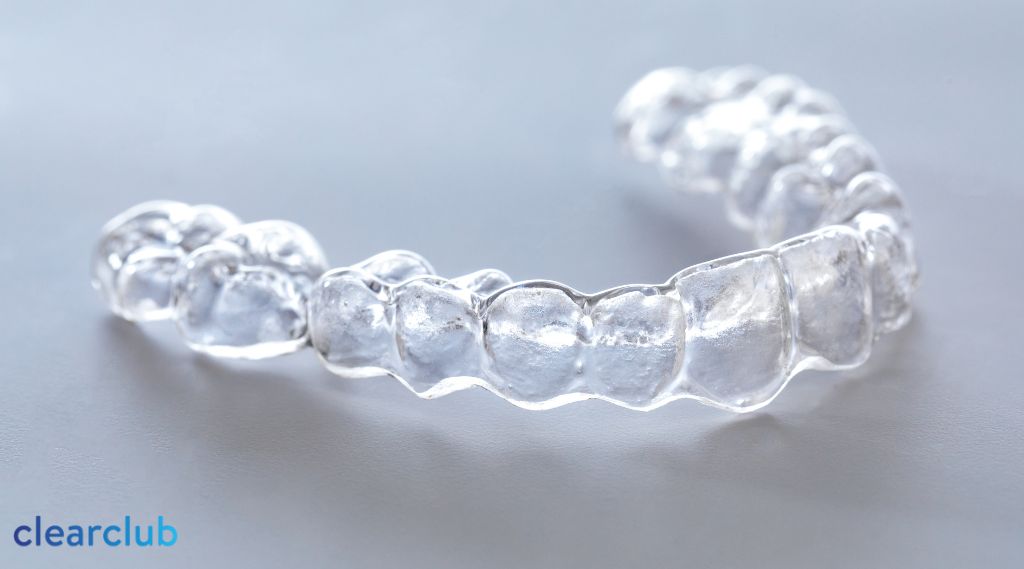
Bruxism Symptoms: Causes and Possible Treatment
Share

Are your teeth incredibly sensitive?
Tooth sensitivity is a common symptom of bruxism, which is caused by the excessive force of teeth grinding and clenching. The enamel of the teeth becomes worn down over time, exposing the sensitive dentin layer underneath. This can lead to pain or discomfort when the affected teeth come into contact with hot or cold foods and drinks, or even when the person breathes in cold air.
The sensitivity can vary from mild to severe, and it may affect one or more teeth. In some cases, the sensitivity can be so severe that the person may avoid certain foods or drinks altogether. Over time, tooth sensitivity can also lead to other dental issues such as cavities and gum disease if left untreated.
It often gets to a point where treatment options like the night guards we sell on our ClearClub website can be real life savers.
Common Symptoms of Bruxism
Bruxism is a condition that can cause a range of symptoms, including dental, physical, and sleep-related issues. These symptoms can vary in severity and may be different from person to person. Here are some of the most common risk factors of bruxism:
Dental Symptoms: Bruxism can cause a number of dental problems, including:
- Tooth sensitivity: As the enamel on the teeth becomes worn down, the teeth may become more sensitive to hot or cold temperatures, sweet or acidic foods, or even cold air.
- Jaw pain: The constant pressure and strain on the jaw muscles from grinding or clenching can lead to pain or stiffness in the jaw, neck, or face.
- Chipped or cracked teeth: The excessive force of teeth grinding can cause visible damage to the teeth, including chips, cracks, or even fractures.
- Worn-down teeth: Over time, the surface of the teeth can become flattened or worn down from the constant friction of grinding, which can affect the appearance of the teeth and even make chewing or speaking more difficult.
Physical Symptoms: Bruxism can also cause a range of physical symptoms, such as:
- Headaches: The tension and strain on the muscles of the head, face, and neck can lead to frequent headaches or migraines.
- Earaches: The strain on the jaw muscles can also cause pain or discomfort in the ears, often mistaken for an ear infection.
- Facial pain: The constant muscle activity or teeth clenching can cause pain or tenderness in the cheeks, temples, or around the eyes.
- Neck pain: The strain on the muscles of the neck and shoulders can lead to stiffness, soreness, or even neck pain.
Sleep Disorders: Bruxism can also disrupt sleep and lead to a range of sleep-related issues, such as:
- Disrupted sleep: The sound of teeth grinding or clenching can be loud enough to wake up a partner, leading to disrupted sleep for both parties.
- Insomnia: The discomfort or pain associated with bruxism can make it difficult to fall asleep or stay asleep throughout the night.
- Fatigue: Poor-quality sleep due to bruxism can leave a person feeling tired or fatigued during the day, affecting their overall quality of life.
If you're experiencing any of these symptoms, it's important to talk to your dentist or healthcare provider. They can help diagnose the underlying cause of your symptoms and recommend appropriate treatment options to alleviate your discomfort and protect your teeth.
How To Treat Bruxism
Treating bruxism can be difficult depending on the severity of the condition and the underlying cause. In some cases, the symptoms may be mild enough to not require any treatment. However, if left untreated, bruxism can lead to long-term dental problems and physical discomfort.
One of the most effective treatments for bruxism is the use of a mouthguard or dental splint. These devices work by creating a barrier between the teeth, preventing them from grinding or clenching against each other. Mouthguards can be custom-made by a dentist to fit the specific shape of a person's teeth, or they can be purchased over the counter at a drugstore or online.
Custom-made mouthguards are typically the best treatment option for people with moderate to severe bruxism, as they provide the most comfortable and effective fit. If you are interested in a Custom-made mouthguard of incredible quality while still being affordable check out ClearClub!
Over-the-counter mouthguards are a more affordable option, but they may not fit as well as custom-made mouthguards. They are typically made from a soft material that molds to the teeth and can be trimmed to fit.
In conclusion, while there are several treatment options for bruxism, mouthguards are often considered the best treatment option. Custom-made mouthguards, like those at ClearClub provide the most comfortable and effective fit, while over-the-counter mouthguards can still help alleviate symptoms. Regardless of the treatment option chosen, it's important to address the underlying cause of bruxism and protect the teeth from further damage.
